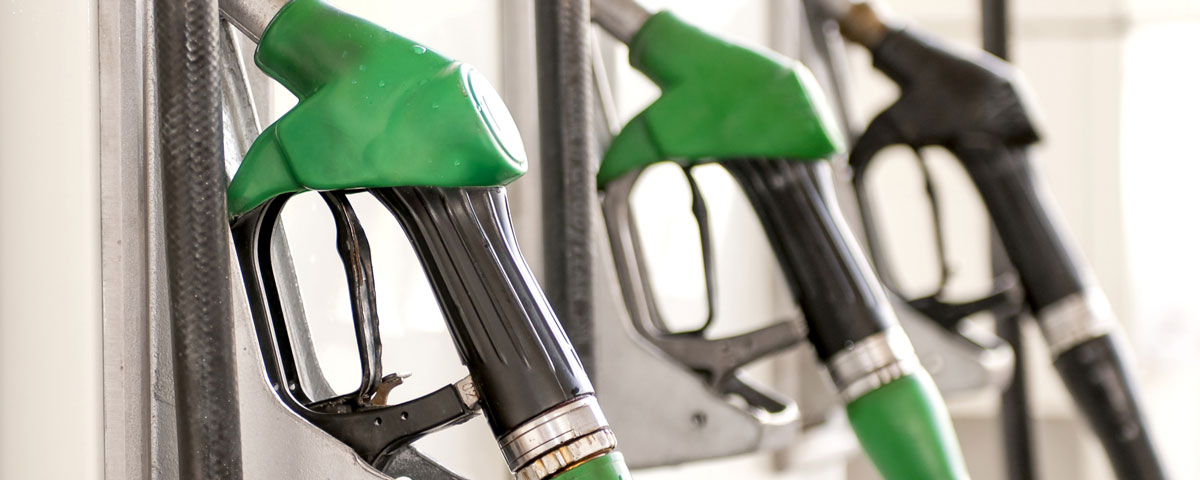What is E10 Petrol?
E10 petrol is petrol that is made with 10% renewable ethanol. Renewable ethanol is made using sustainable materials, such as waste wood, grains, and sugars.
Currently, the standard petrol supplied at fuel stations is made with 5% renewable ethanol, which is why fuel pumps are labelled with ‘E5’.
Why Is Petrol Changing?
According to the UK government, burning fuel made with these sustainable materials is known to have ‘little impact on emissions associated with air quality and public health.’ Therefore, by using a higher quantity in vehicle fuel, carbon emissions will be cut down. It also means using a sustainable fuel, relying less on finite resources.
It is estimated that the move from E5 to E10 fuel will lead to a reduction of around 750,000 tonnes of CO2 emissions every year. This is equivalent to taking 350,000 cars off the road.
As well as the positive environmental impact E10 petrol will have, there is another advantage in the production of renewable ethanol. The production process results in valuable by-products, including stored CO2 and animal feed.
E10 Petrol Compatible Cars
There are concerns among drivers regarding the compatibility of vehicles with E10 petrol. The UK government has confirmed that all vehicles manufactured after 2011 will be compatible with E10 petrol, however older vehicles may not be. You can double check your car with the government compatibility checker.
Older, classic, and collectible cars are unlikely to be compatible with E10 petrol, neither are mopeds with small engines (50cc or below). According to research carried out by the RAC Foundation, some common vehicles that are not compatible with E10 petrol include:
- VW Golf
- Nissan Micra
- MG MGB
- Mazda MX5
What If My Vehicle Is Not Compatible With E10 Petrol?
For those who drive older vehicles that are not compatible with the changed fuel, it will still be possible to buy the current E5 petrol, but only super unleaded. This means petrol is likely to cost you slightly more than the standard fuel, probably around 4-6p a litre.
What Makes Super Unleaded Different and Safer for My Car?
Many motorists already favour super unleaded fuel for a range of reasons, from the way it enhances engine performance to its supposedly lasting longer. Having a higher octane rating than unleaded fuel, super unleaded has a higher performance. Choosing this fuel should mean:
- Better throttle response
- More power
- Reduced engine knock
It is compatible with all vehicles that run on unleaded fuel but will be most noticeable in performance cars and motorbikes.
What If I Accidentally Use E10 Petrol, And My Vehicle Is Not Compatible?
It is thought that filling up the tank once with E10 petrol should not cause any major problems to your vehicle, even if it is incompatible. Simply return to using E5 super unleaded fuel next time. Should you incorrectly use E10 petrol multiple times, however, you may start to encounter issues with the vehicle. Prolonged use of E10 fuel in an incompatible vehicle is not recommended.
How does E10 petrol impact my car?
E10 fuel might have a different effect depending on the age and style of car you drive.
Using E10 in a Classic Car
There is a concern surrounding the effects of E10 fuel in classic cars. E10 fuel contains twice as much ethanol as E5 fuel, which can be problematic for the mechanics in a classic car. This is because ethanol absorbs water from the atmosphere – which can in turn be expelled within the car. It can cause condensation in the fuel tank, carburettors and in fuel lines, as well as cause rust and corrosion to metal components. Being a solvent, ethanol can also damage rubber, fibreglass and plastic, which are also often present in classic cars.
Will My Modern Car Be Affected?
It is less likely that a modern car will be negatively affected by the use of E10 fuel, due to the different types of materials found within the car. However, that being said, vehicles that contain rubber, fibreglass, and plastic components could experience more wear and tear, because of the increased ethanol. This is especially true of modified cars, where new parts made with these materials have been added.
Another concern is that fuel consumption could actually increase, because the fuel isn’t as ‘pure’. Ethanol does not offer as much energy as petrol, therefore some vehicles could end up using more of it.
Will Diesel Be Changing Too?
At the moment there are no plans for diesel to be changed, however the availability of biodiesel is slowly starting to increase. Like E10 fuel, biodiesel is made using a percentage of renewable sources such as rapeseed and sunflower oil. In general, most modern vehicles that run on diesel should be able to use 20% biodiesel. Those manufactured before 1992 will need to have alterations to avoid problems, however.
Many drivers wonder if it’s still worth buying a diesel car in 2021, because of the varying environmental schemes being put in place in different cities, and the UK government overall.
The widespread use of E10 petrol in other European countries and Australia, means that we know the fuel has been thoroughly tested and has had little impact on vehicle performance. In fact, E10 petrol is now the ‘reference fuel against which new cars are tested for emissions and performance, since 2016’. The use of E10 petrol in vehicles from September 2021 means that the UK will be another step closer to achieving the goal of reducing carbon emissions by 78% by 2035, compared to 1990 levels.


